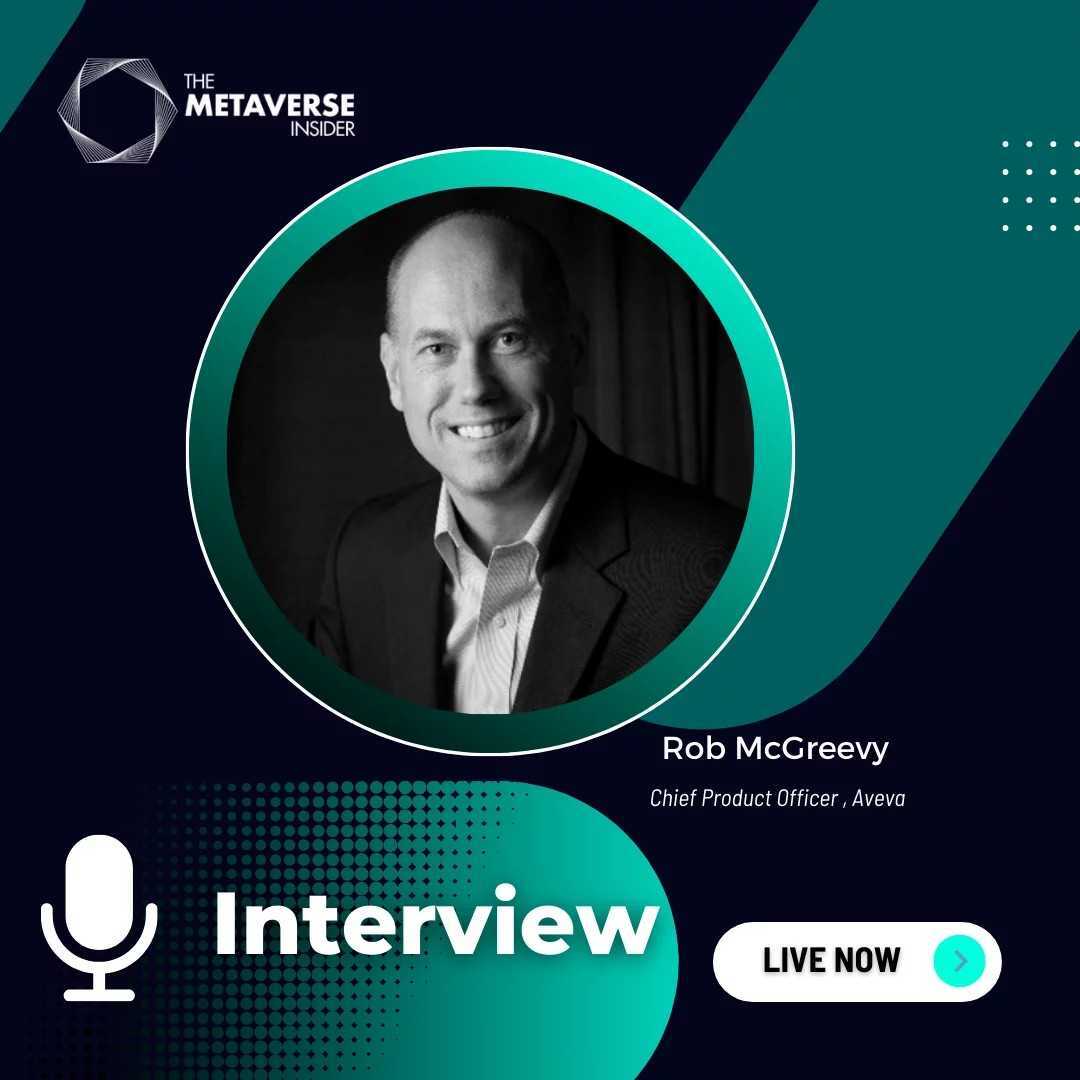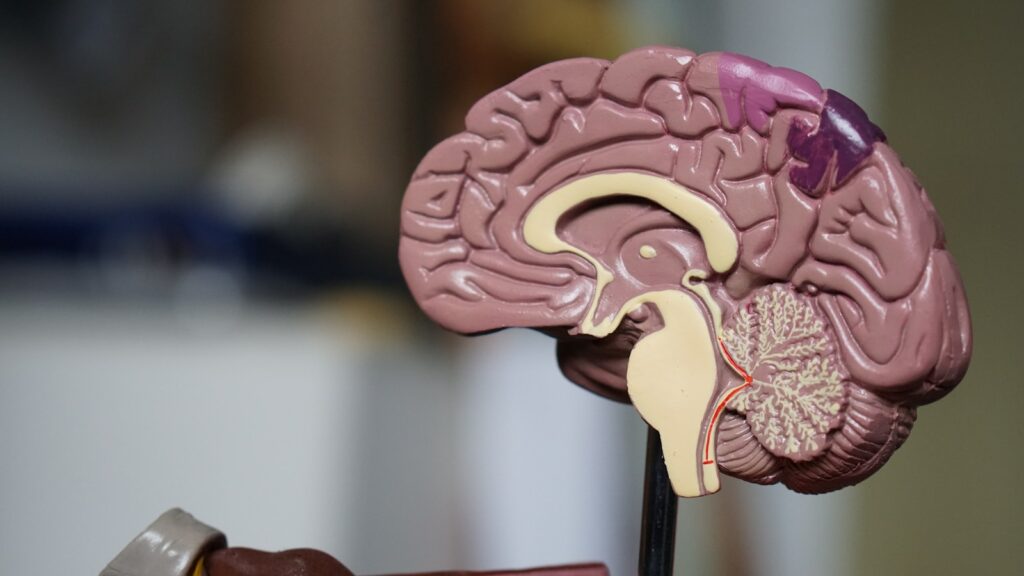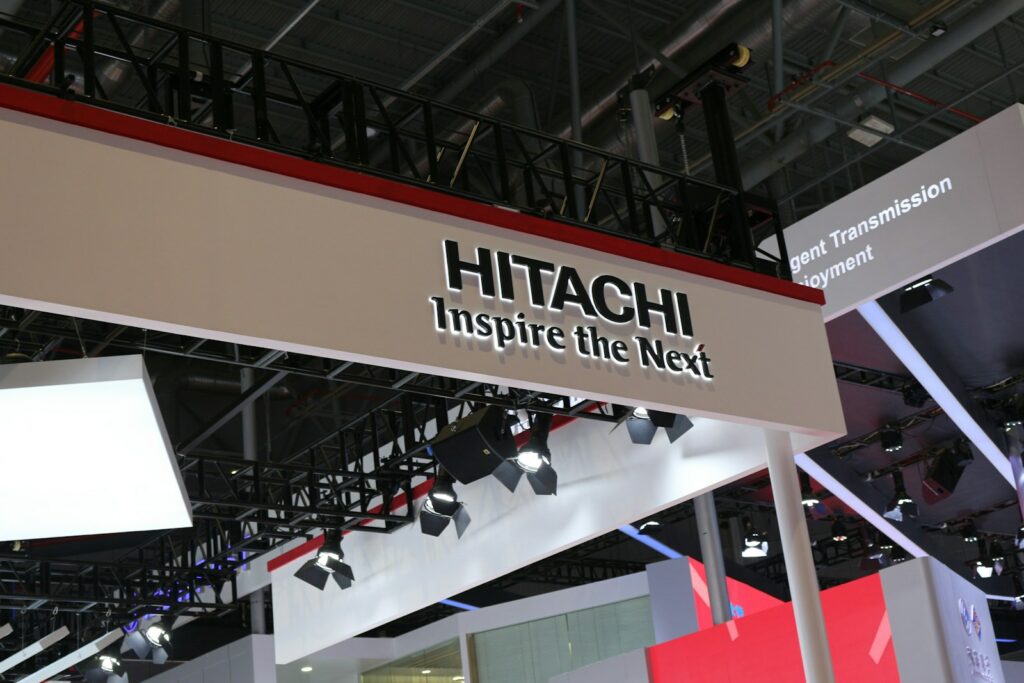Aveva is a leading provider of engineering and industrial software solutions. They offer innovative technologies to optimize operations and improve efficiency for businesses worldwide – and one of their recent advancements is the industrial metaverse.
The Metaverse Insider had the pleasure of interviewing Rob McGreevy. As the Chief Product Officer for Aveva, McGreevy has almost 30 years of experience in the industrial manufacturing and critical infrastructure market, dedicating his career to software development in this field. McGreevy’s responsibility is to determine the investment direction for Aveva – focusing on understanding the evolving market landscape and aligning it with Aveva’s research and development efforts to develop and deliver software solutions that cater to the needs of various industries. In Part 2 of our interview with McGreevy, we address Aveva’s trajectory and see first-hand what the potential of the industrial metaverse encompasses.

Challenges for the Industry at Large
McGreevy shed light on the multifaceted challenges apparent in transitioning to the industrial metaverse, combining technological prowess with change management strategies to drive successful implementation.
One of the main challenges is the technological aspect of integrating various systems and sources. McGreevy emphasized the complexity of managing diverse processes such as boilers, case packers, palletizers, chemical processes, and mixed power grids with renewable and traditional sources. Despite Aveva’s extensive experience in amalgamating these systems, it remains a significant challenge. Additionally, there are other technological challenges like cybersecurity and determining the balance between cloud, on-premises, and edge computing:
“The amount of domain specificity that’s required is super important… It’s a diabolically complicated environment, to amalgamate and bring these systems and sources together.”
The human side of the equation presents another set of challenges. The shift in the way people work requires effective change management. McGreevy highlighted the need to onboard, train, and acclimate employees to the new technology-driven processes. The traditional method of shadowing a supervisor for months is being replaced with hands-on training using tablets and digital tools. This transition requires a different mindset from both workers and the organization as a whole:
“Even though we’ve got a lot of tech that’s out there … changing the way an organization onboards people, trains people to get them acclimated to using this technology … this is quite a bit of a challenge for the industry at large.”
In addition to these challenges, there are other considerations, such as the adoption of global standards. McGreevy also mentioned country-specific and industry-specific nuances that arise when digitizing work, including the potential involvement of work councils and labor unions.
Aveva’s Strategic Direction
Following the recently appointed CEO of Aveva, Caspar Herzberg, the Metaverse Insider was curious to understand if this had any impact on metaverse initiatives. McGreevy mentioned that the industrial metaverse has always been part of their strategic focus, with leaders like Herzberg advocating for its transformation. McGreevy emphasized that Aveva remains dedicated to supporting and developing the metaverse, seeing it as an opportunity for industry advancement.
“The industrial metaverse has always been a part of our strategic direction… I don’t see any material changes in direction, strategy, or vision.”
When asked about Aveva’s goals for the future, McGreevy highlighted their ongoing efforts and achievements in areas such as immersive operator training and simulation systems. He mentioned that they would continue building on their existing initiatives. Furthermore, he emphasized the significance of data as the foundational layer for the metaverse. Aveva’s focus is on capturing, collecting, and organizing industrial information to create contextually relevant digital twins. McGreevy emphasized that access to such data is crucial for the success of the metaverse:
“For the next 12 months, you’ll see more data, more of the digital twin, more of the operational pieces of the digital twin… and then that visual layer that fits on top.”
In addition to data, Aveva is also focused on digitizing work processes and behaviors specific to different industries. McGreevy emphasized the importance of assembling industry-specific applications and digitizing various work processes such as product changeovers, maintenance inspections, and rounds. The visualization aspect is another key focus for Aveva, as they work on providing improved ways to visualize data, including 1D, 2D, and 3D views, real-time data, and enhanced support for mobile devices and tablets.
Overall, Aveva’s trajectory involves incremental progress toward the metaverse by strengthening the data foundation, developing industry-specific applications, and enhancing the visualization experience. The goal is to create a fully immersive and integrated environment for industrial operations.
Visualizing the Industrial Metaverse
McGreevy showcased some of the software and solutions they offer to connect the physical and digital worlds in industrial environments. He began by describing their ability to digitize existing facilities using 3D laser scanning, which creates a point cloud representing the geometry and physical nature of the space. McGreevy explained that Aveva also develops high-fidelity simulation models based on actual process production control systems, allowing users to run scenarios and simulate real-life situations such as fires. This integration of simulation and production control systems offers a comprehensive understanding of the operational outcomes.
Another area of focus is supporting remote field workers. McGreevy mentioned that the field workers can communicate with Network Operation Centers (NOCs) while operating off the same view of the equipment, thanks to the digital twin and the interconnectedness of the metaverse. He also highlighted the use of augmented reality on tablets, where workers can overlay digital information on physical equipment, facilitating inspections and maintenance tasks.
To demonstrate the convergence of the digital and physical worlds, McGreevy shared examples of Aveva’s software. They developed a search functionality that allows users to search for specific assets, such as a pump, and retrieve real-time data associated with it. Furthermore, they provide 3D representations of assets, whether through laser scanning or schematic versions, enabling immersive exploration and planning of fieldwork. The software seamlessly integrates various data sources and models, continuously improving and expanding the capabilities.
McGreevy’s presentation showcased Aveva’s tangible contributions to the industrial metaverse, emphasizing that their software is production-grade and not merely demo material. Make sure to check it out for yourself in the interview footage above.
If you found this article to be informative, you can explore more current Digital Twin news here exclusives, interviews, and podcasts.













